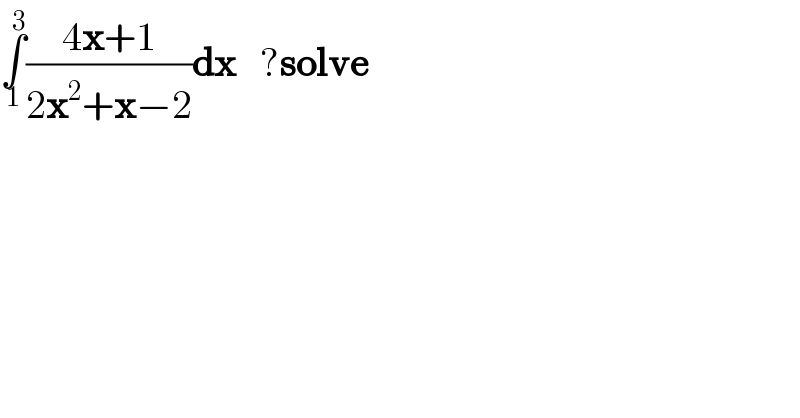
Question and Answers Forum
Question Number 22946 by ANTARES_VY last updated on 24/Oct/17

Answered by ajfour last updated on 24/Oct/17

Answered by Joel577 last updated on 24/Oct/17
![Let u = 2x^2 + x − 2 → du = 4x + 1 dx x = 1 → u = 1 x = 3 → u = 19 I = ∫_1 ^(19) ((4x + 1)/u) . (du/(4x + 1)) = [ln u]_1 ^(19) = ln 19 − ln 1 = ln 19](Q22970.png)
| ||
Question and Answers Forum | ||
Question Number 22946 by ANTARES_VY last updated on 24/Oct/17 | ||
 | ||
Answered by ajfour last updated on 24/Oct/17 | ||
 | ||
| ||
Answered by Joel577 last updated on 24/Oct/17 | ||
![Let u = 2x^2 + x − 2 → du = 4x + 1 dx x = 1 → u = 1 x = 3 → u = 19 I = ∫_1 ^(19) ((4x + 1)/u) . (du/(4x + 1)) = [ln u]_1 ^(19) = ln 19 − ln 1 = ln 19](Q22970.png) | ||
| ||